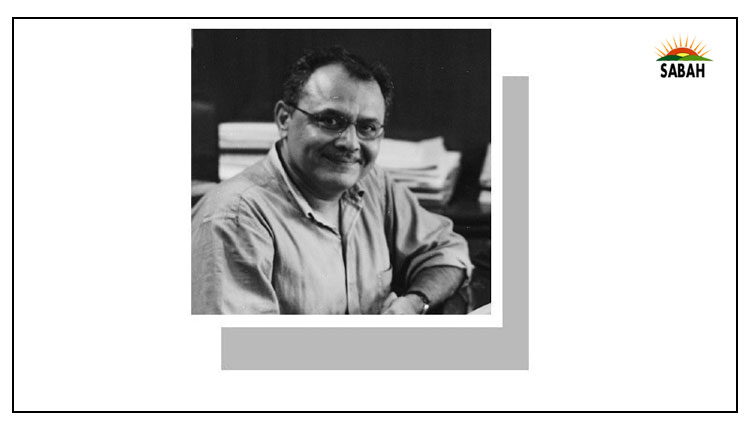Precarious talks process…Abbas Nasir
IMRAN Khan holds the key and could jettison the Supreme Court-nudged talks between the government and opposition on a likely same-day election date for the national and the four provincial assembly elections. So, much is riding on the process.
The talks which reported some progress, as we slipped into the weekend, with negotiators on both sides denying a deadlock on Friday, after the second round, a late-night development, which appeared inexplicable to me at least, threatened to subvert the negotiations.
The raid at the home of former Punjab chief minister Chaudhry Parvez Elahi in Lahore and the pathetic accompanying optics, including the bulldozing of the main gate by a police armoured personnel carrier, and the arrest of some women who were escorted out by women police officers, had the potential to throw a spanner in the works.
PTI leader Imran Khan pounced on that development and called a meeting of his top aides in Zaman Park on Saturday. As these lines were being written, there was no word on that meeting. But the raid could provide the opposition with a perfect reason to pull out of what was to be the third and final round next Tuesday.
In any case, the government and those running the hunt and hound opposition campaign ought to know that PTI has carved out a substantial support base in the security set-up too, and Mr Elahi may well have been tipped off about the planned raid and moved elsewhere.
Whether the action was prompted by someone lobbing rocks and stones from inside the house at the police, or refusing to open the gate, is immaterial; what is significant is that the whole episode was so thoughtless that the police also tried to enter the adjacent home of Chaudhry Shujaat Husain, a staunch ally of the government whose son is a federal minister.
Apart from drawing widespread opprobrium, the raid or the message enveloped in it appeared lost on everybody I have talked to. Nothing at all was gained. On the other hand, it gave the opposition another excuse to continue to present themselves as the wronged party, the underdog, in an uneven battle, and agitate.
With the elections at one point or the other this year, gifting the opposition such sympathy-generating presents seems foolish and worse than any accidental own goal. Those responsible for ordering such macho actions should reflect on why they end up looking like idiots.
Even now, I am reluctant to write off the dialogue process. Yes, you could say my position reflects my belief that all political disputes need be settled by interlocutors sitting across the table as there is no other way, regardless of who or what the issue involves.
And this is true also of disputes rooted in the doomed political engineering experiments that our country has had so many of, with the establishment, a euphemism for the military, sometimes alone and sometimes with the co-opted elements of the judiciary, playing a major part.
In recent years, with the judiciary being weaponised again for such engineering projects and the military growing weaker in relative terms, a new dynamic has been emerging where neither of the two lethal weapons, as I call them, can go it alone. It is at best a troika that calls the shots with the government of the day being the third element.
While all political parties talk of the sanctity of the vote and of the 22 crore (220 million) awam, deep down they know that to be able to sustain themselves in power they cant survive solely on the strength of their mandate. They need one, or ideally both, elements of the troika onside. You dont have to be a rocket scientist to understand this.
A case in point: as former army chief Gen Qamar Javed Bajwas retirement was approaching, and it was becoming clear that the PML-N would get to decide his successor, the PTI leader threw tantrums in order to influence the decision. He failed to do that but not before trying to weaken the incoming chief by making him controversial.
The current oppositions vociferous demand for elections to the dissolved Punjab Assembly (and the relatively muted one for the KP legislature) within a certain time period and if possible for all assemblies including the National Assembly, and the governments reluctance, are not demonstrative of their divergent interpretations of the Constitution.
It reflects how they see the path to their political success charted in the coming months. Is it important that the military and judiciary are neutral and impartial as they claim to be, or is it the popular perception that carries more weight?
It is this same perception, often evolved with very good reason, which guides policy decisions and the moves of political parties no matter where they are: in government or opposition. So, the election date becomes even more relevant as the chief justice of the Supreme Court is retiring in mid-September.
As the incumbent government feels hard done by, by some of his and his like-minded judges decisions, it would feel far more comfortable if the next transfer of power post-elections does not happen until the new CJP is in office who it views as more neutral and not prone to taking sides. The opposite is true for the opposition in terms of its assessment.
On top of that, the CJP steers the process of appointments to the superior judiciary via a committee, and both sides give the impression that the three to four appointments to the Supreme Court alone over the next year or so are a life-and-death issue.
Both sides have taken this sort of baggage into the talks. It wont take much to shatter the delicate balance so lets see how things pan out over this weekend and next week. We wont have to wait too long to find out.
Courtesy Dawn












